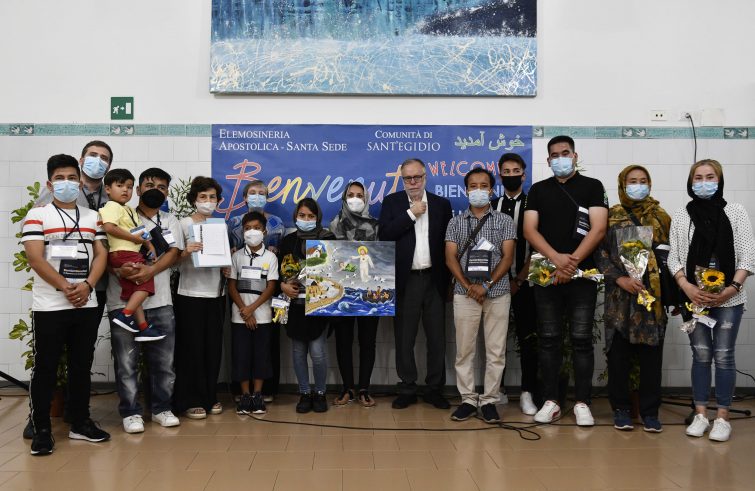
On July 8, 2013, Pope Francis chose as the destination of his first apostolic journey the small island of Lampedusa, the closest gateway to Europe from North Africa and the symbol of suffering in the Mediterranean, a beacon of hope for many migrants. “I have come here to challenge people’s consciences”, the Pope said, to denounce indifference in the face of the tragedies constantly in the news. We have in front of us the terrible images of migrants fleeing misery, wars, persecution.
From Europe we see them attempting to cross the Mediterranean, which has become a mass grave of countless men, women and children whose hopes have drowned with them.
Those who manage to reach Europe are rarely welcomed. Sometimes they are locked up in camps, occasionally they manage to enter a country, but without papers they are forced to hide, with no other option than illegal work, thus falling prey to traffickers and exploiters of all kinds. Migrants are also instrumental to political parties’ strategies to sow fear among the populations of host countries: some political leaders have gone so far as to speak of an “invasion.”
Solutions respectful of Member States’ and populations’ concerns must be put in place to avoid discriminatory or violent reactions, bearing in mind the risks of a shipwreck and the violence perpetrated by modern slavery criminals in the desert. The Community of Sant’Egidio, in partnership with the Federation of Italian Evangelical Churches and the Italian Bishops’ Conference, created the Humanitarian Corridors in 2015. This ecumenical initiative entails cooperation with States and international organisations, notably the United Nations High Commission for Refugees. The first step is to identify asylum seekers with the help of local partners in the countries of departure (Syria, Lebanon, Ethiopia, for example) and then ensure their safe arrival into Europe. Memoranda have been signed with Italy, Belgium and France (with this latter, the 2017 agreement was renewed on April 12 with the Ministries of Interior and Foreign Affairs, providing for the arrival of 300 people into France). The initiative is supported by a recent European regulation (no. 810/2009) on the Community Code on Visas, which provides for the possibility for EU Member States to issue humanitarian visas valid in the territory of a given Country only.
Humanitarian Corridors are not restricted to mere travel.
As soon as refugees arrive in the host country, the supporting bodies arrange their reception, language training and job search. A wide network marked by social commitment and human support continues after arrival, with a positive impact on society. The refugees are properly welcomed, housed in dwellings and structures located throughout the country, according to the principle of widespread reception. This reassures everyone, not least to avert the onset of fears and populist outbursts of xenophobia.
The objectives of the Humanitarian Corridors are the following: to organise safe journeys and combat trafficking in human beings; to ensure legal entry into the host countries; to carefully plan reception by mobilising associations; and to counter populist propaganda that exploits feelings of fear of diversity.
Above all, the project focuses on the individual situation of each person, specifically single mothers with children,
with a special concern for vulnerable people, for the suffering caused by war, all forms of violence and disease.
The experience of the Humanitarian Corridors shows that immigration can be organised around the commitment of civil society through partner organisations promoting the programme and supportive associations that shoulder all the responsibility for its implementation, covering all the costs without burdening public bodies. A human model for Europe tempted by national egoism.









